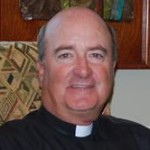Robert Stagg wrote “Chapter 2: Pastoral Leadership” for A Pastor’s Toolbox. He is a priest of the Archdiocese of Newark and a pastor. He defined the pastor’s job as maintaining “God’s perspective” and seeing things “in their true light.” To maintain God’s perspective, he wrote, the pastor needs “better planning and having competent people” (p. 23) as his colleagues, “people to whom you can delegate responsibilities.” This makes perfect sense, but it is a very difficult ability to cultivate, and only comes after years of experience.
Father Stagg recommended the “servant leadership” model of pastoring in which the good pastor is the one who helps the flock achieve their goal. He even spoke of his parishioners as his “customers.” He has a parishioner-centered vision of the parish, and argued that “nothing is as important as caring for people” (p. 26). But his chapter does not consider other leadership styles, such as Hersey and Blanchard’s situational leadership.
The good pastor, he wrote, has three “overriding responsibilities”: (1) caring for people, (2) selecting the staff, and (3) assessing parish needs. Assessing these needs — in short, pastoral planning — is very important. Such planning is often considered to be the work of the parish pastoral council. But Father Stagg’s chapter sends mixed messages about the PPC. At one point he praises it as “the board of trustees for the parish” (p. 24). This is surprising, since parishes are not corporations in most U.S. dioceses and PPCs do not function as boards of trustees.
At another point, Father Stagg recalls that, in his first year at the parish, he made the mistake of consulting only with the pastoral council. Later, he said, he rectified that oversight by establishing a parish “senate.” The idea of a parish senate is not mentioned in Canon Law, but recalls the two-tiered council structured envision by William Bausch in The Hands-On Parish. The parish senate is an innovation, but at least it serves the purposes of consultation.
Father Stagg’s emphasis on the pastor’s overriding responsibilities testifies to his experience, but he assumes that his readers are already knowledgeable about leadership styles and the intricacies of pastoral councils — a large assumption.

